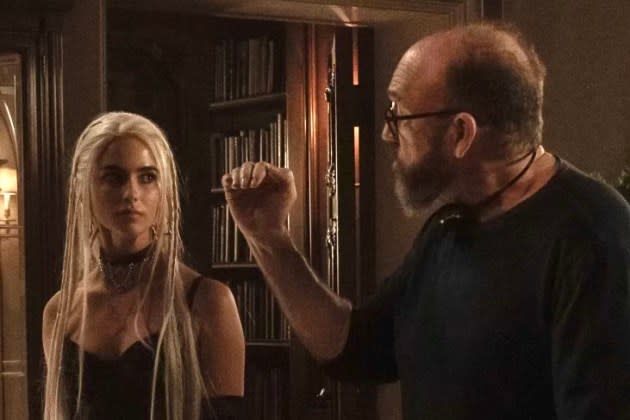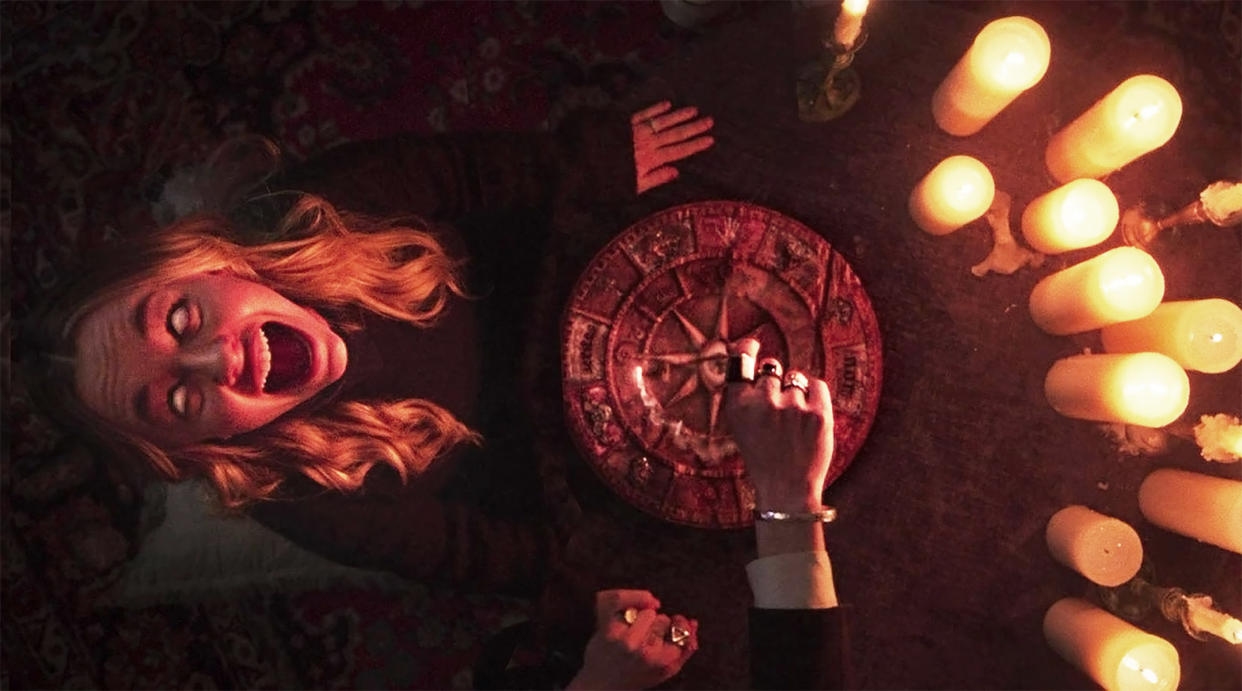Director Chuck Russell Helped Make Jim Carrey and Dwayne Johnson Movie Stars — His Horror Remake ‘Witchboard’ Inspired Him More Than Ever: ‘I Wanted to Outdo Myself’

Over his 40-year career, director Chuck Russell has had a knack for turning hungry young talent into movie stars, regularly conjuring memorable performances. He advocated for Patricia Arquette to be the lead in her first film role, 1987’s “A Nightmare on Elm Street 3: Dream Warriors.” He made Jim Carrey and Cameron Diaz household names in his 1994 blockbuster “The Mask” — knowing Diaz was perfect even though it was her first movie. And he helped transition Dwayne Johnson from wrestling to the acting world by having him star in the 2002 epic “The Scorpion King.”
No matter the genre, scope or budget, Russell loves seeing what raw talent can achieve — a fascination he picked up while cutting his teeth in the world of theater.
More from Variety
“We have to humanize these things, whether it’s action or comedy or drama,” he says. “You gotta get into your performers’ heads. You gotta get their actual personality into their performances.”
Russell is currently talking about “Witchboard,” his new film, and a remake of the 1986 cult classic, which has its world premiere Friday at Montreal’s Fantasia Festival. This indie horror project harkens back to the early days of his career, which started with “Dream Warriors” and included his 1988 remake of “The Blob” — both of which have stood the test of time with discerning ’80s horror fans.
The new “Witchboard” concerns a young woman named Emily (Madison Iseman) who happens upon a haunted spirit board in the forest. As genre fans might imagine, the more she uses it for personal gain, the more dark things happen around her. But where this film sets itself apart from other horror fare is a true sense of place and scope to the story. Emily and her fiancé, Christian (Aaron Dominguez), have a breezy, charming group of friends who all hang out in the French Quarter of New Orleans, where much of the film was shot. Christian is also in the process of opening a fine-dining restaurant, which creates plenty of scenes fueled by tastings and dinners. All said, “Witchboard” succeeds in giving characters multiple dimensions, something to do, something to look at, and interior lives — which not all supernatural tales take the time to develop.

Russell says much of that foundation came via the setting.
“My impression of classic witchcraft and sorcery is associated with the mystique of New Orleans,” he says. “There’s also literally a French connection in this story, as some of the most dramatic Witch Trials took place in France, and there is a connection with the French settling in New Orleans. I wanted to have a connection between this set of characters and the set of characters in the 1700s that created the Witchboard. Nothing could be more atmospheric and colorful than New Orleans, and the music’s cool.”
From there, the story of food and friends took shape for Russell.
“I’ve been wanting to do a foodie film, so a number of my interests came to play here,” he says. “New Orleans is a fantastic place for food, and there’s a connection for me between food and horror. If [David] Cronenberg did body horror, I guess we’re doing food horror here. Also, I missed that time right after college when we all had a network of friends. It’s right after school where you test your ability to achieve your goals, and have this tight group of friends say, ‘We want to start a boutique restaurant.’ I thought it was a great underpinning for the story, because I didn’t just want to do the same formula. This isn’t about one character. Yes, there’s mayhem, but it’s not about just timing out character deaths. The danger of the horror genre is getting too formulaic, so I wanted to be imaginative.”
The mayhem is doled out slowly but surely, largely thanks to a mustache-twirling turn from Jamie Campbell Bower as a sexy-evil college professor who wants the Witchboard all for himself — seemingly to fuel the nonstop bacchanalia happening in his creepy old mansion.
Some of the setpieces — including a dinner party gone very wrong, involving many extras, stunts and bloody pieces of cutlery — necessitated intricate planning, as Russell was creating big budget-level stunts at an indie price tag.
“There is some witty staging in putting things together,” he says. “The sequence in the restaurant is multiple stunts, multiple effects and, because it’s an independent film — I think if it was a big studio film, I would have built the whole thing on a stage. But as it was, we used a real, standing restaurant with an open two-story layout. There was a lot of careful staging, and it was a lot of fun to make it happen. We had three days to shoot that, which is not a lot for that kind of thing, with all this setup. We were being inventive.”
Russell knows these classical elements of film aren’t always top of mind for all directors, but they are the foundation of the work he’s focused on for “Witchboard.”
“I just think the audiences deserve a great tale,” he says. “I’m here first to serve the audiences with something where there’s a universal story to tell, there’s something to relate to these characters. Honestly, the opportunity in independent film to work with new talents or to help bring up young actors — these are wonderful, young new talent, and it’s a real pleasure to find their limits.”
Beyond elevating his cast, Russell says he was committed to reaching greatness on his terms.
“It’s my personal horror trilogy: ‘Elm Street,’ ‘The Blob’ and this,” he says. “I wanted to outdo myself. That was the challenge to myself: To outdo what I’ve done before.”
Best of Variety
Sign up for Variety’s Newsletter. For the latest news, follow us on Facebook, Twitter, and Instagram.
